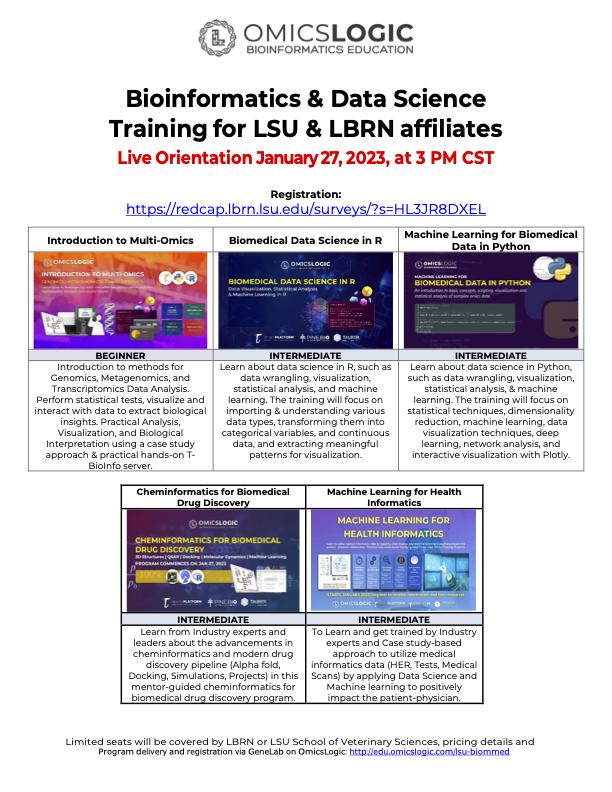About
Louisiana Biomedical Research Network is pleased to make available our 2022/2023 LBRN Winto Bioinformatics Training for undergraduate, graduate students, faculty and staff from institutions across Louisiana. This program will proceed in virtual/online formats with support from Pine BioTech.
Program begins winter 2022/2023. Applications will be reviewed on a first come basis immediately after the deadline.
Please see the following listed programs available for all the program details from each participating LBRN Partner. You can also view the information on their website here: https://edu.omicslogic.com/lsu-biommed
Please direct any questions about the programs to E-Mail to LBRN.

